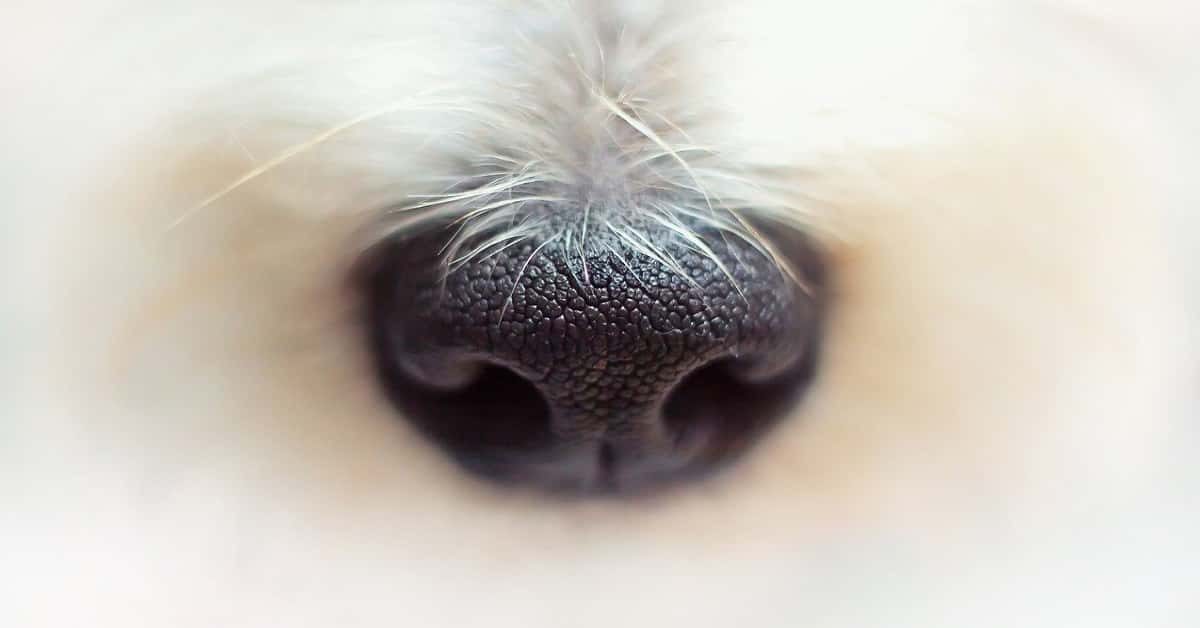WHICH SMELL DO DOGS HATE?

Our dogs love some things, special treats, cooked chicken pieces, turkey meatballs, etc. They also like going on walks, chasing squirrels, belly rubs, and more. In the same way, there are things that our dogs do not like.
It is no secret that our dogs have two hundred to three hundred million olfactory cells. Compared to human beings that have just five million olfactory cells, our dog’s sense of smell is a powerful thing. They perceive and enjoy many smells, on the flip side with their strong sense of smell there are smells they simply detest.
So “Which smell do dogs hate?“
1. Citrus Fruits
Oranges, lemons, grapefruits, etc. apart from being consumed by us, can be used as fragrances for cleaners, deodorizers, candles, and also for various essential oil products. This seems like a good thing, and it is for us. But for our dogs, it can be really harmful.
You see citrus fruits can lead to serious irritations in the respiratory tract of our dogs. Naturally, our dog would avoid them due to the way it makes them feel as they would have breathing problems around it.
That is why you would find that extracts of citrus fruits are used to make dog deterrent products.
Dog deterrent products are simply products that are sprayed or rubbed on substances to discourage our dogs from tampering or damaging those things. It may be pieces of furniture in the house, our shoes, or something of high value which you don’t want your dog to be messing with.
With Citrus fruits, you may not even need to buy a dog deterrent product containing citrus oil. Just placing the skin of the citrus fruit around the area where you don’t want your dog to go would achieve this aim.
The last word here, even though most dogs do not like to be around citrus fruits, this is not true for all dogs. That is the joke nature plays on us. You would need to confirm that your dog actually dislikes being around citrus fruits by just bringing it around him or her and seeing the reaction before deciding on how you are going to be using it.
2. Hot Pepper
Bell Pepper, Anaheim Pepper, Habañero Pepper, Cayenne Pepper, chili pepper, Piri Piri, etc. these all create that hot tingling sensation on our tounges and our noses, a sensation that is heightened tens of thousands of times in our dogs which make our dogs hate their smell naturally.
Just holding a hot pepper in front of your dog is enough to make them move away from you. Normally, you may not even perceive it at that stage but our dog’s sense of smell is highly sensitive and they can perceive the hot pepper at a level we can’t imagine.
These peppers contain a chemical compound called capsaicinoids which are responsible for the tingling sensation.
Grinding them and mixing them with some water creates a dog deterrent that can be used to deter your dog from approaching anything which you deem valuable.
With that being said, you should be careful to make sure you use it moderately if you want to use it as a deterrent for your dog, excess use can lead to excessive sneezing and respiratory problems with your dog.
3. Vinegar
Vinegar has many uses especially when it comes to the preservation of things but even for us humans, it has a strong, acidic smell. This makes it hard for us to tolerate the smell.
This situation is even more true for our dogs, they actually despise the smell of vinegar and would go to great lengths to avoid perceiving it. Including completely avoiding the area.
A good way to use vinegar as a deterrent is to apply it on cotton balls and place it around the area. This way, it can be removed easily when not needed.
4. Spices.
Spices especially when they have been grounded are a big deterrent for dogs, ground mustard seeds, paprika, curry powder, thyme, etc. These all have the same effect which chili peppers have on our dogs.
You will find that ground spices are used in making many dog repellant products, but they can also be used naturally. Spray them on your garden soil to prevent your dog from damaging your plants or your shoes to prevent your dog from chewing them up.
A word of caution, never blow the ground spice directly onto your dog’s face, this can cause burning and irritation, which can lead to tissue damage and respiratory issues.
5. Fresh Herbs
Rosemary, basil, ylang-ylang, and even mint have smells that are appalling to our dogs. In fact, many people that know this secret use these herbs as guardian plants in their gardens, planting them around the main garden plants to form some sort of fence around them.
Using these methods not only keeps your dog away from your garden, digging up your roots, and causing you pains. It makes you have a fresh supply of the needed herbs so that you don’t need to worry about purchasing them over and over again.
It’s worth noting that with mint herbs, not all dogs abore the smell from it. In fact, you will find out that mints are used to add flavor to some treats. These types of treats are mostly used to deal with the issue of bad breath in our dogs.
As with other herbs, you have to first test them on your dog to be sure what works and what doesn’t before investing heavily into it.
6. Rubbing Alcohol.
Dogs just detest rubbing alcohol. But the main problem with rubbing alcohol is that it is only as effective as how concentrated it is and the higher the concentration the more flammable it becomes.
With that in mind, great caution should be taken when using rubbing alcohol.
The best approach is to soak small quantities in cotton balls and place them in the areas where you don’t want your dog going.
7. Mothballs
Yes Mothballs, these tiny white balls with that unique smell. They are not only good for keeping moths away from our clothes, but their smell also makes them good for keeping dogs away from things you don’t want them around.
Mothballs can also be used as a form of pesticide. Some people would also use the same as a deodorant dependent on their scent preference.
That being said mothballs can be very dangerous and lead to death not only to dogs but to us as human beings, hence if we are to use them as a deterrent, we should use them carefully. The mothballs should be placed in secure places or places out of reach so as not to run the risk of endangering anyone with them.
8. Artificial Beauty Products, Perfumes, and Colognes.
Beauty creams made with chemical constituents, hair sprays, Body toners, Perfumes nail polishes, etc. These products smell funny to our dogs because they are filled with chemicals.
Have you ever wondered why your dog stays away from you while you are busy with your makeup, no need to wonder now, they don’t appreciate the chemicals in your creams and foundation makeup, so it is easier to be away from you in the meantime than inhale these chemicals.
If you want to change this situation, you may opt into using beauty products made from natural substances. That way, you still get to enjoy your dog’s company while making yourself pretty.
9. Household Cleaning Agents.
The cleaning agents which we use for cleaning our house are likely to have scents that our dogs hate. Most of these products are made with chlorine, ammonia, citrus oils, and more. All of which are harmful to your dog.
For example, your dog inhaling ammonia can lead to burns and irritations in our dog’s throat, citrus can lead to major irritations in their respiratory systems and high levels of chlorine can lead to skin issues for our dogs.
So, next time you are cleaning your house and your dog leaves you, it’s not because he doesn’t like a clean environment, no, it’s just because he can’t stand being around the scent which these house cleaning agents produce.
A good way to deter your dog from some areas in your house is to consistently clean them with these cleaning agents, your dog would not be running around the kitchen or hiding in the toilet when these places are regularly cleaned with these cleaning agents.
IN CONCLUSION.
Even though our dogs are always sniffing and testing things around them, nature has made it that they can still keep them safe by making them detest some of the things which can easily cause problems for them or harm them. In this situation, we can use some of these things to our advantage and even for training purposes.
Be it as it may be, understanding these things will also go a long way in helping you to protect and understand your dog better and deal with situations involving these things properly

Hi, I am Charles Nwankwo Editor-in-Chief, Mydoggything.com. Gleaning from Professional Dog Trainers, behaviorist, Registered Veterinarians, and Breeders. We are passionate about making dog care easy for you. My job is to make sure that you get the best-updated dog care information to understand and take care of your dog or dogs.
